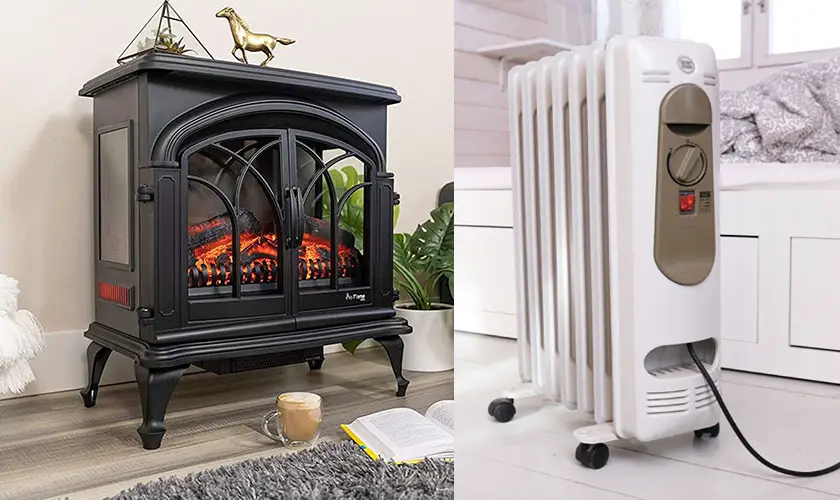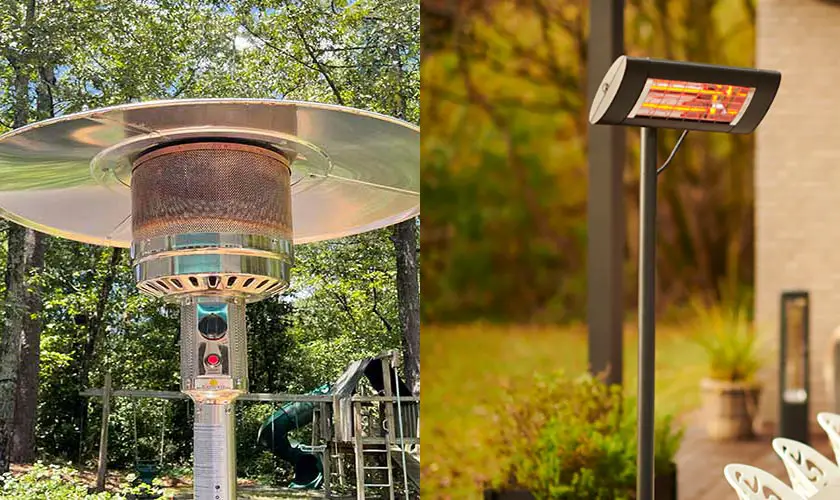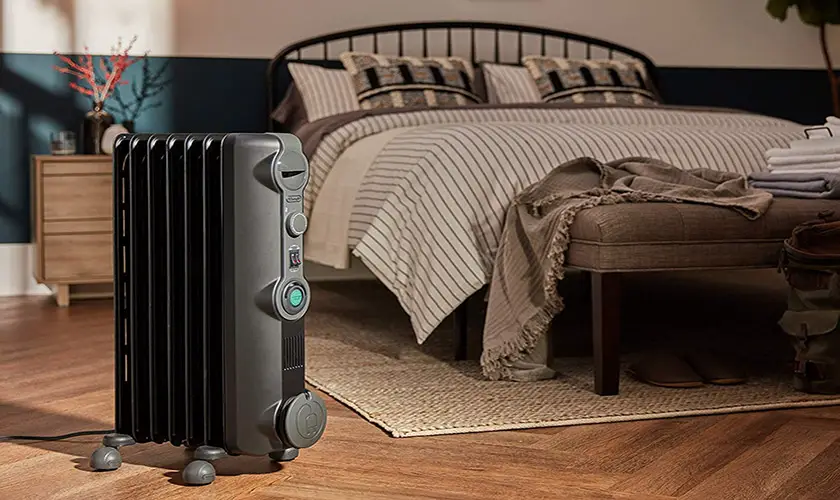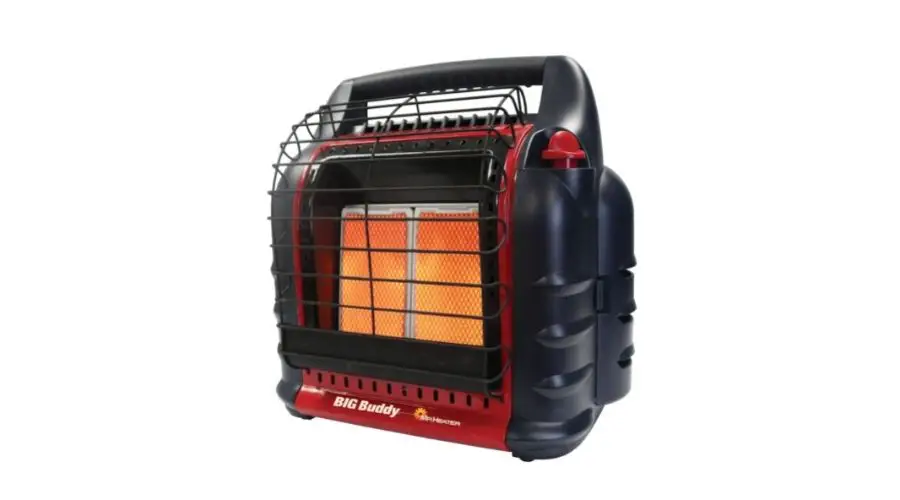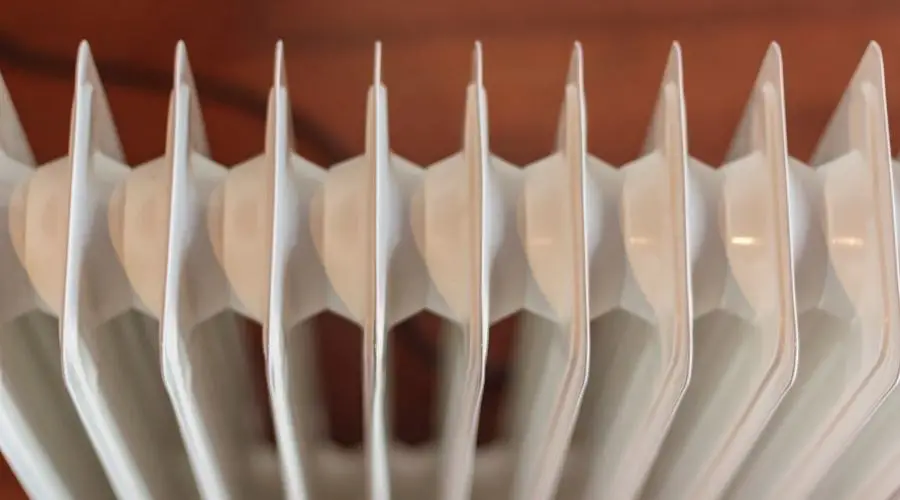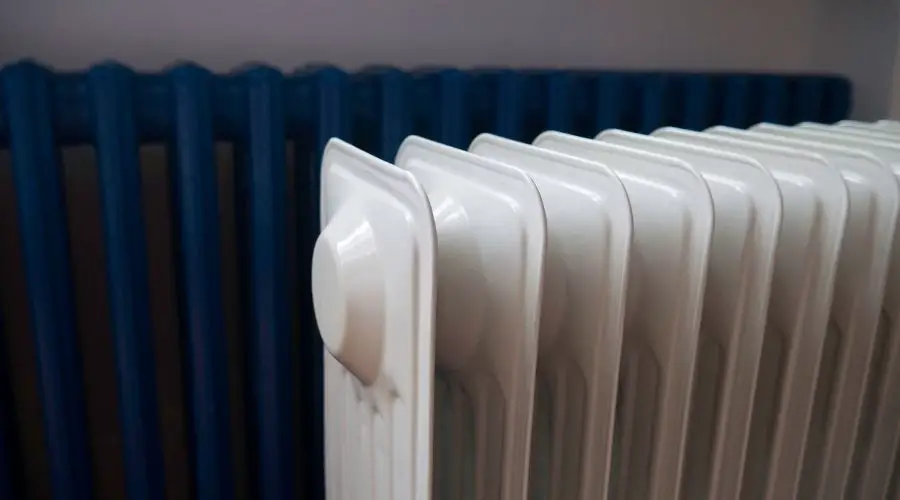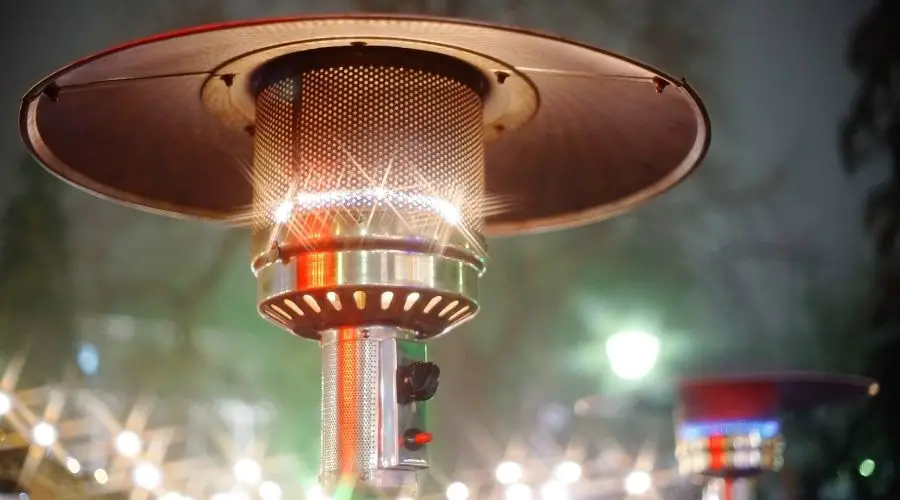
The use of propane as a means of heating has recently increased, even compared to oil, electric, and natural gases. This is especially noticeable in northern countries where constant heating is necessary.
Many homeowners have made the switch or are at least heavily considering it because it is cheaper in the long run. Propane is especially useful because it’s very versatile and can power furnaces, barbecues, kitchen appliances, etc. This universal gas even reduces greenhouse gas emissions by 68 percent.
However, as with any innovation, people still don’t know much about it and remain skeptical. Only 5 percent of all US homes currently use propane as their heat source. One question often posed is: Do propane heaters give off carbon monoxide?
If working correctly, propane heaters produce very little, but usually, no carbon monoxide. However, propane appliances will produce carbon monoxide if your heater is broken. This can be dangerous as carbon monoxide is toxic for humans.
Nevertheless, this doesn’t make propane heaters unsafe. Most appliances and machines are dangerous if they’re not working correctly, and this is what we’ll be researching in today’s article.
As propane is becoming more and more popular, it’s necessary to answer a few questions consumers might have:
- Do propane heaters give off carbon monoxide?
- Are these heaters safe to use indoors?
- Can the fumes harm you?
- Do you need ventilation when using this kind of heater?
- Will a carbon monoxide detector detect propane?
- Do propane fire pits give off carbon monoxide?
Do Propane Heaters Give Off Carbon Monoxide?
No, properly functioning propane heaters don’t give off carbon monoxide. Carbon monoxide is very toxic for humans – so much so that most victims who have tragically died in fires were dead long before they even saw the flames.
Carbon monoxide poisons a person when they breathe it in, and they need 100% oxygen to recover. This condition is why so many people worry about this when buying propane heaters.
The only way for a propane heater to release carbon monoxide is to start burning with incomplete combustion.
This gas byproduct isn’t the usual way that heaters work, and it means that there’s a lack of oxygen when burning – less than 24:1 air to propane ratio, which is usually from a clogged burner.
Even though it may seem unlikely, this kind of malfunction can happen very quickly, while you are entirely unaware of it.
Merely changing a valve on your heater can cause this, which is why it’s best always to call a professional if you ever experience any issues with your heater.
Propane heaters malfunctioning can produce dangerously high carbon monoxide levels, but adequately working propane heaters are safe and rarely give off any carbon monoxide.
How Propane Heaters Work
Propane heaters work on a basis similar to propane torches. Lighting a propane torch produces heat – but it isn’t a good heater since that isn’t its primary purpose. There are many functions in a propane heater that make it utilize and distribute the heat more efficiently.
You need to understand that propane is a clean-burning and efficient heating fuel, and when used in heaters – it usually comes in liquid form (even though it’s usually a gas). However, the propane used in your heaters isn’t 100% clean due to other mixed compounds.
Most propane heaters use a piezoelectric igniter to light the heater. This material, often a quartz crystal, has the property of developing an electrical potential when pressure is applied (it has a spring-loaded hammer mechanism in the housing). This mechanism will generate a spark, igniting the propane in return.
Propane heaters usually use porcelain to spread the flame in a pattern to distribute the generated heat well. Most heaters (at least the good ones) have a built-in automatic thermostat.
They use this to control the temperature and keep it on a desirable level. All heaters have a manual flame control, which you can use to manage your heater.
Signs Of Carbon Monoxide Poisoning
Even though this will unlikely happen, it’s vital to notice carbon monoxide poisoning signs. Carbon monoxide is entirely undetectable by smell, so there’s no natural way to recognize your heater gives it off.
The best defense against this is having carbon monoxide detectors installed around your home. Here are the most common symptoms of carbon monoxide poisoning:
- A metallic taste in the mouth
- Headache
- Dizziness
- Nausea
- Breathlessness
- Collapsing
- Loss of consciousness.
Also, dead plants are a massive sign of carbon monoxide in the air. This gas kills animals, humans, and plants, as well.
However, this is very unlikely to happen; manufacturers of propane heaters are very well aware of how dangerous it would be, so safety is the foremost concern. It’s the first thing they account for.
Are Propane Heaters Safe To Use Indoors?
Not all propane heaters are safe for indoor use. But, if used correctly, some propane heaters are safe indoors.
There are two kinds of propane heaters: indoor and outdoor propane heaters. Don’t use outdoor propane heaters indoors, and vice versa.
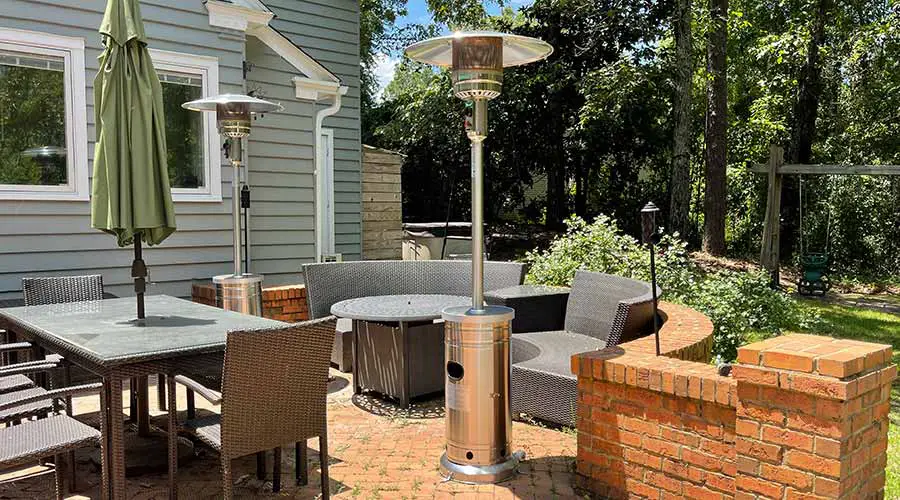
1. Outdoor Propane Heaters
Outdoor heaters are suited for garages and sheds, not inside houses and apartments. The main difference is in the way they control their carbon monoxide output.
They are safe to use in garages and sheds if you have the door open so the carbon monoxide can leave the space.
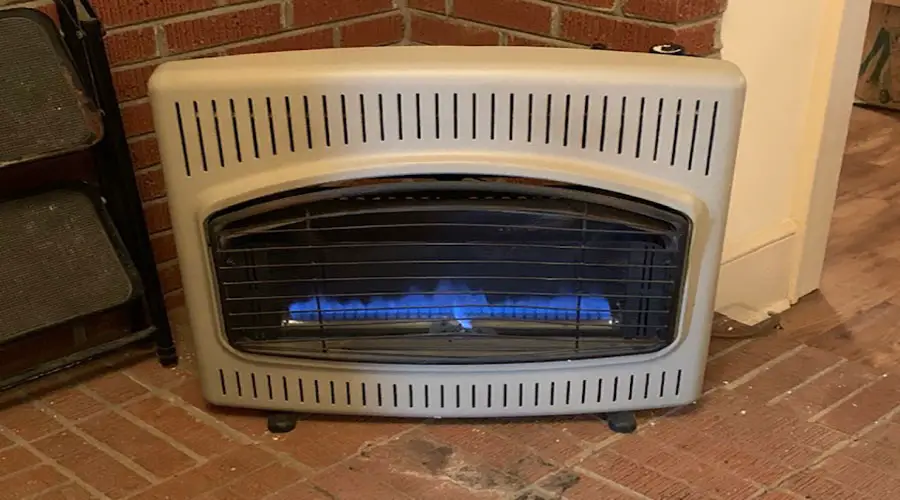
2. Indoor Propane Heaters
Indoor propane heaters can’t let the carbon monoxide out, so they have oxygen sensors connected to automatic off switches. If they detect insufficient oxygen in the room, they will automatically turn off your heater.
What Safety Tips You Should Know
- Get the right size: To ensure your safety, choose a propane heater that’s appropriately sized for your room or living space. Always look for propane heaters that have: a low oxygen sensor, a high-temperature coated safety guard on the front, overheat protection, and automatic shutoff (just in case it flips over).
- Read the manual: Always read the instruction manual carefully before installing your propane heater. Always install your propane heater away from a combustible surface (for example, drapes, a carpet, a bookshelf.)
- Keep flammable objects away: Please keep it away from combustible materials like books, beddings, and towels, as these things will burn up in a second. If you’re using a wall-mounted heater, ensure your wall materials aren’t combustible.
- Install carbon monoxide detectors: Never put anything on top of your propane heater, and make sure to install carbon monoxide detectors in your home (hopefully, they will never go off!).
- Please don’t leave your heater unattended: Turn it off when you leave the room, and turn it off when you go to bed. Do not leave your heater on overnight!
- Yellow & orange colors are bad: If your propane heater starts burning a yellow or an orange flame instead of the regular blue flame, turn it off immediately! Your heater isn’t working correctly.
- No sprays: Don’t spray deodorants, air fresheners, aerosol spray cleaners, or hair spray near your heater as it may combust.
- Inspect it annually: Have space where you’re keeping your heater inspected annually. And lastly, don’t place your heater anywhere, which will block emergency exits.
Do You Need Ventilation When Using a Propane Heater?
Yes, you need a sound ventilation system when using a propane heater. We recommend you not purchase a propane heater but use an electric one if you don’t have adequate ventilation.
This is a precaution if your propane heater malfunctions and starts producing carbon monoxide – this isn’t an issue with electric heaters. So, purchasing a propane heater may be a safety hazard if you don’t have proper ventilation at home.
If your ventilation is no good, then if it ever does come to a propane leak or a carbon monoxide buildup, it will be effortless for either of those to build up in your living area very quickly. This buildup can be very harmful, even lethal.
Can Propane Fumes Harm You?
Firstly, it’s unlikely that your propane heater will give off any propane fumes, but if it does, they’re not harmful in low concentrations but can be lethal in high concentrations.
This is because propane will displace oxygen, which can lead to death due to asphyxiation. However, it’s doubtful that your heater will give off any propane fumes.
It’s much more dangerous to touch propane, as feeling liquid propane will cause symptoms similar to frostbite. Ingesting propane can kill you.
What’s more dangerous with propane fumes, if your heater somehow starts giving them off, is that their buildup can cause a fire. Propane is highly flammable, after all – that’s what makes it such a good fuel.
This also means that if there’s a buildup of propane in your living area, lighting something with a match or a lighter might set it off, blowing everything into a massive flame.
Another danger, although not with leaks, is that of high pressure. Propane is stored in tanks in liquid form under high pressure. A rupture or a dent in this tank can result in an explosion. When purchasing, make sure that your tank isn’t damaged and that it’s free from rust and dents.
Do Propane Fire Pits Give Off Carbon Monoxide?
Propane gives off carbon monoxide but in low amounts. Lower than gasoline.
Everyone loves fire pits, especially in the backyard, and propane has become a favorite for evening activities in the backyard.
Many people have invested in propane fire pits, which indeed give off carbon monoxide, but it must be noted that it’s completely harmless.
The amounts of carbon monoxide given off by propane pits are so low, verging on non-existent. As soon as the propane releases into the air, it transmutes into a gaseous state. It’s heavier than air, so it naturally falls, and if you don’t have enough ventilation, it can pool down in your fire pan.
Will A Carbon Monoxide Detector Detect Propane?
Unfortunately, carbon monoxide detectors can’t detect propane leaks. Despite all the security measures we have today, a carbon monoxide detector can’t catch a propane leak. Propane needs a specialized sensor.
Can You Leave a Propane Heater On All Night?
No, you can’t leave a propane heater on all night.
We’ve already touched upon this, but this is vastly important. You should never, under any circumstances, leave your propane heater on all night. While we’re at it, you should never leave any gas heater on all night. This is a massive safety risk!
Many heaters have timer options, so you can set it to turn itself off at any given time.
Advantages & Disadvantages Of Propane Heaters
It seems that all we’ve talked about were the dangers of using propane heaters. We feel that it’s essential to address that it’s improbable that any of those things will happen.
They could happen – that’s true, but propane heaters are made to be safe, and if you’re thinking about buying one, you should know that your safety’s covered. To rectify that, let’s look at other pros and cons of using propane heaters.
| PROS | CONS |
|---|---|
| Contains clean fuel | Contains carbon monoxide |
| Propane is cheaper than other fuels out there | Is highly flammable |
| It saves you money all-around | The tank must be carried & filled up |
| Propane is portable so that you can take it anywhere | Storage space is limited |
| Provides great backup fuel in case of emergencies | The initial cost is a lot at first |
PROS
- Clean fuel: Suppose you’re big on ecology and want to help preserve the planet. In that case, you should know that propane has been considered a clean fuel ever since 1992 – propane reduces the number of greenhouse gasses such as carbon dioxide or pollutants like carbon monoxide and nitrogen oxide. This is why it’s an excellent alternative to oil or petroleum as other fuels.
- Propane is cheaper than other fuels: This heating system is cost-effective, and even with electricity bills, it’s still cheaper.
- You will also save money on maintenance and replacements – as we’ve already established, propane burns cleaner, which means that your heater won’t get clogged up as much, unlike oil-based furnaces.
You’re also escaping the issue of paying monthly or annual bills. You can refill your tank whenever you empty it, and since you’re unlikely to be emptying a tank monthly, you will be saving time this way. It should be noted that buying your first tank is usually expensive.
- Propane is portable: Since it’s stored in a tank, you can use it on your RV, take it camping – whatever you want. It can also be stored on your property for up to forty years. Appliances that run on propane are much more efficient than appliances based on other fuels.
- Great backup fuel: Even if you don’t plan on using propane as your primary fuel, it’s a great backup fuel. These generators can be an excellent backup for power outages and can do well as supplemental heaters for spaces out of reach of central heating.
CONS
- Gives risk of carbon monoxide poisoning: We’ve already mentioned the unlikely but certainly serious dangers of carbon monoxide poisoning and what would happen if you suffered from propane poisoning.
- Propane is also highly flammable: When the tank is under intense pressure, if you damage the tank, you may cause an explosion.
- Movement is not easy: You may experience trouble when delivering propane. Getting your hands on this stuff is pretty easy, but moving it around isn’t as easy. You need to carry your tank, fill it, and then drive it back and install it. This tank isn’t light, which may be a hassle for some.
- Initial costs are a bit much: The initial cost of using propane can be relatively high. This cost isn’t because of the propane itself. Propane is quite cheap, but because of the equipment used for the heating system. That’s why you’ll see a return on your investments in the long run, but you may need to cash out a lot in the beginning.
Final Thoughts
Propane heaters produce carbon monoxide, but the chances of that are slim if you use the heaters correctly and efficiently. Make sure to never use it on all day but in increments. Overall, they are relatively good heaters to have.


